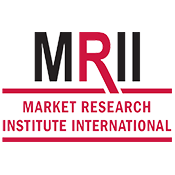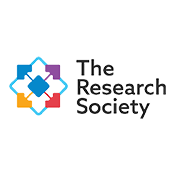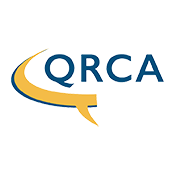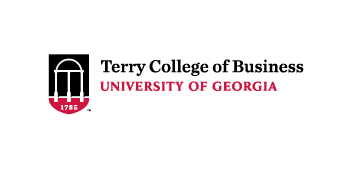Free webinars + stay connected
Access our most recent webinars with leading thinkers in the world of market research and stay informed about new courses and upcoming events by joining our mailing list.
About this course
What you’ll learn
Just as no firm exists in a vacuum, market research is a part of a larger society with norms, shared cultural aspects, standards, best practices, and a mix of players with differing roles and missions. The long-term success of the research profession depends on our recognizing that there are behavioral constraints which represent an informal code of conduct governing our relationships across all of these components.
In this course, you will learn about:
- Ethical practices in research and the steps you need to take to avoid causing harm to participants.
- Personal data and how to how to protect the individual who provided it, whether the data is collected by direct questioning or by passive methods.
- Privacy by Design—a toolkit for helping organizations and individuals test their market research processes and project designs, to make sure that any risks to participating individuals’ privacy and of causing harm are kept to a minimum.
- The international principles that apply to protecting personal data. You will master how these principles are converted into law and built into everyday research practice through self-regulation, based on industry codes and guidelines.
- The ISO standards (i.e., the International Standards Organization) that have been developed to help ensure consistent research processes and minimum quality standards when working globally.

Learning objectives
After completing this course you should be able to:
- Explain why solid ethical practices are essential to the long-term success of market research and the responsibilities researchers have to the key stakeholders—research participants, clients, the general public, and the research profession.
- Describe the concept of harm and how it applies to those whose data we collect and/or process.
- Describe the concept of personal data – sometimes called personally-identifiable data or PII – and its evolution over time.
- Describe some of the ways which a transition from primary data collection to increased reliance on secondary data is changing our ethical responsibilities to those whose data we analyze.
- Discuss the universal principles of privacy and data protection as applied in market research in different countries and cultures.
- Distinguish between ethical requirements and legal requirements.
- Describe what a privacy impact assessment or PIA involves.
- List the major industry and professional associations for market research practitioners and organizations worldwide.
- Explain how the market research industry’s commitment to self-regulation creates a unique set of legal and ethical obligations.
- Cite major sources of guidance for researchers concerned about their legal and ethical responsibilities.
Who should attend?
- Anyone engaged in the design and execution of a research study.
- IT professionals in research organizations who have responsibility for their company’s IT infrastructure.
- Anyone looking for a general understanding of the ethical practices in market research and the steps you need to take to do no harm.
- Client-side staff who commission research.
- Experienced researchers looking to catch up with the latest developments.
- Mid-level staff seeking to broaden their understanding of their ethical responsibilities.
- Corporations seeking professional development options for their internal training portfolio.
- Supplier-side researchers seeking courses for new-employee onboarding.
Continuing Education Information
Students successfully completing graded components earn a Digital Badge (Opens in a new window) and 0.8 University of Georgia Continuing Education Unit (Opens in a new window) (CEU) from The University of Georgia.
As a graduate of the course you will be recognized by industry associations, employers, peer groups and other professionals as understanding how to translate your research findings into reports and presentations that grab your audience’s attention, address the business decision your client needs to make, and offer sound and useful recommendations. This recognition will help you advance in your company and the industry.
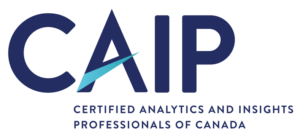
CAIP Canada (Opens in a new window) also recommends the course for candidates looking to fill in the gaps or gain a refresher in specific areas.
Requirements & policies
Fees & funding information
$359 – Standard Fee
$329 – Association Discount (Members* of: Insights Association; ESOMAR; Canadian Research Insights Council, The Research Society, Intellus Worldwide, QRCA, AMAI, WAPOR-Latinoamérica, MRII Board of Directors, UGA MMR Advisory Board.)
$50 – One-Month Extension (only one extension is granted per participant)
*Membership will be verified.
Prepayment is required to be registered. The prices listed are per person (US Funds).
Cancellation or refund
We will issue a refund, minus a $100 processing fee, if you have not accessed the online course. All cancellation and refund requests must be sent via email to gc-student@uga.edu no later than seven (7) days after your course access information is issued.

Technology
Take advantage of the different features (PDF files, URLs/links to external websites, animated exercises, audio and video clips) you should use a browser such as Chrome (Opens in a new window), Firefox (Opens in a new window), Microsoft Edge (Opens in a new window), or Safari (Opens in a new window) and a fast internet connection provide the best experience. The online platform supports many popular web browser versions. To find out if your computer’s current software configuration is compatible, see System & Software Requirements (Opens in a new window).
Prerequisites
There are no prerequisites for enrolling in Ethical and Legal Issues in Market Research. However, prospective enrollees might also consider our course, Introduction to Market Research and the Research Process.
Explore more foundational, topic-specific courses in our Principles Express series (Opens in a new window).
Textbooks
There is no additional textbook reading assignment for this course; all readings are contained within the online course and in the links and resources you will find in the online course.
People & organizations
Author
Adam Phillips – Managing Director, Real Research
Adam Phillips is a research consultant and Managing Director of Real Research. He was Chairman of the ESOMAR Professional Standards and Public Affairs Committees for 15 years and in 2015 won ESOMAR’s prestigious John Downham Award for outstanding achievement and excellence in contributing to the market research industry at an international level. He has been CEO of both AGB Nielsen Media Research and Euroquest, a European research network which specialized in public opinion and media research, CEO of Mass-Observation and CEO of Winona Research in the USA. He is a Fellow and past Chairman of the MRS, a Fellow of the Royal Statistical Society and currently serves on the Executive Editorial Board of the International Journal of Market Research. He has also been a member of the Press Complaints Commission, which self-regulated the British press, and Chairman of the Financial Services Consumer Panel which advises the UK Financial Conduct Authority on the consumer regulation of the financial services industry.

Supporting associations
Founding Organizations
Proud Corporate Sponsors of MRII
 (Opens in a new window)
(Opens in a new window) (Opens in a new window)
(Opens in a new window) (Opens in a new window)
(Opens in a new window) (Opens in a new window)
(Opens in a new window) (Opens in a new window)
(Opens in a new window) (Opens in a new window)
(Opens in a new window)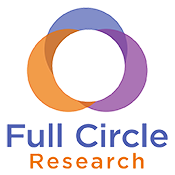 (Opens in a new window)
(Opens in a new window) (Opens in a new window)
(Opens in a new window) (Opens in a new window)
(Opens in a new window) (Opens in a new window)
(Opens in a new window) (Opens in a new window)
(Opens in a new window) (Opens in a new window)
(Opens in a new window) (Opens in a new window)
(Opens in a new window) (Opens in a new window)
(Opens in a new window) (Opens in a new window)
(Opens in a new window) (Opens in a new window)
(Opens in a new window) (Opens in a new window)
(Opens in a new window) (Opens in a new window)
(Opens in a new window) (Opens in a new window)
(Opens in a new window)Supporting Organizations
Prices, course details, dates, and times are subject to change.
Contact us + FAQs
FAQs
View the most frequent questions asked by our learners
Financial and Military Assistance
Find out which programs are eligible for assistance
Accommodations
View our accommodation policy


